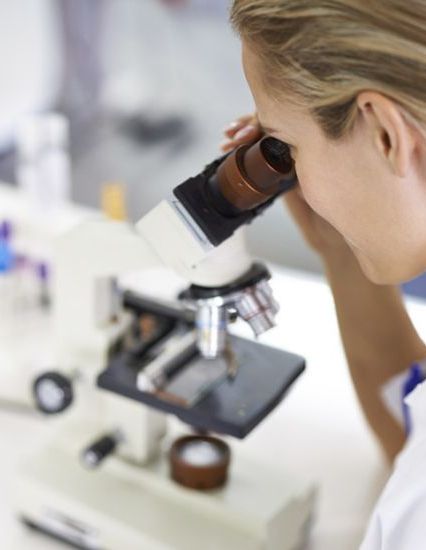ENA profile (SS-A, SS-B, nRNP/Sm, Sm, Scl-70, Jo-1) (IB)
The ENA profile (against soluble nuclear antigens) consists of consists of the determination of 6 anti-nuclear antibodies.

Dom Lekarski
Waiting time for the result up to 14 days

Przebadani

Synevo
- Test description
EAW profile
ENA profile
(against soluble nuclear antigens) consists of a label of
6 antinuclear antibodies. Antinuclear antibodies (ANA)
are autoantibodies that react with antigens of the cell nucleus
cells.
ANAs are found in most systemic connective tissue diseases. Their
titers are positive in various diseases
autoimmune:
- including in systemic lupus erythematosus (SLE),
- Sjogren's syndrome,
- rheumatoid arthritis,
- and autoimmune hepatitis,
EPA-reactive antibodies of clinical significance include among others:
- antibodies against Sm,
- antibodies against RNP,
- antibodies against SS-A,
- against SS-B,
- against Scl-70,
- against Jo-1,
P/nuclear p/Sm antibodies are found in approximately 15-30% of patients with
systemic lupus erythematosus,constituting a specific marker of this disease
In high titers, antibodies to RNP are present in 100% of patients
with mixed connective tissue disease and 10% of patients with lupus
systemic lupus erythematosus, together with antibodies against Sm
Antibodies to SS-A are present in about 30% of patients with lupus
systemic lupus erythematosus, and they are responsible for erythema on the skin of the
face and for complete heart block in mothers of newborns,
having this type of antibodies. In addition, these antibodies
together with antibodies against SS-B are found in patients with
dryness syndrome. Antibodies against SS - B are found in 80% of
of patients with dryness syndrome and in about 15% of patients with lupus
systemic lupus, and their presence is associated with late onset of the disease
Antibodies to Scl - 70 are found in about 70% of patients with
systemic scleroderma.
They are thought to be responsible for generalized sclerosis of the skin,
fibrotic changes in lung tissue and cardiac involvement in the course of the
disease. Antibodies to Jo-1 are found in 30% of patients with
polymyositis, and their presence is associated with
interstitial changes in the lungs and with arthritis.

